Gas Pressure Washer: Why doesn't my pressure washer recoil starter work?
If the pressure washer engine doesn't spin as you pull out the recoil starter rope, you probably need to replace the recoil starter, because it's not spinning the flywheel.
If the starter rope won't budge when you try to pull it, the engine may be locked up or the recoil starter may have failed. If you tipped the pressure washer on its side recently, oil may have filled the cylinder, preventing the engine from spinning. Remove the spark plug and then pull the starter rope to see if the engine spins. If it does, pull the starter rope a few more times to clear oil out of the cylinder through the spark plug hole. Then reinstall the spark plug and try to start the engine. The engine may sputter and smoke when starting. If the engine starts, then it will likely run smoothly once it burns off oil inside the cylinder.
If the engine won't spin with the spark plug removed, then the piston may be bound up inside the cylinder or the recoil starter may have frozen up. Pull the recoil starter off the engine and replace the recoil starter if you can't pull the starter rope with the recoil starter off the engine.
If the recoil starter spins after removing it from the engine, then the engine is locked up. You'll likely need to have a service technician examine and repair the locked-up engine.

THESE REPAIRS MAY HELP SOLVE YOUR GAS PRESSURE WASHER PROBLEM
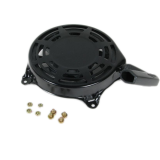
Repair or replace the pressure washer recoil starter
If the pull rope doesn't retract, it's likely that the spring inside the recoil starter is broken. The recoil starter can also fail to engage the engine when the rope is pulled. Replace the recoil starter if the spring breaks or if the recoil starter won't engage the engine.
Repair or replace the pressure washer recoil starter
Symptoms for gas pressure washers
Choose a symptom to see related pressure washer repairs.
Main causes: using a high-pressure spray tip when applying detergent, clogged siphon tube, chemical injection system fai…
Main causes: overfilling engine with oil, improper fuel/air mixture, choke system problems, dirty carburetor, engine nee…
Main causes: broken recoil spring, damaged recoil starter…
Main causes: dirty air filter, stale fuel, clogged or dirty carburetor, bad unloader valve…
Main causes: insufficient water supply, clogged water inlet screen, clogged pressure hose, faulty pump check valves, stu…
Main causes: damaged recoil starter, oil inside cylinder, locked up engine piston…
Main causes: faulty unloader valve, bad pressure regulator…
Main causes: stale fuel, gummed up carburetor, engine needs tune up, throttle and choke controls need adjustment, bad re…
Main causes: pump running for more than 5 minutes when the spray wand isn't being used, faulty pressure relief valve, ba…
Repair guides for gas pressure washers
These step-by-step repair guides will help you safely fix what’s broken on your pressure washer.
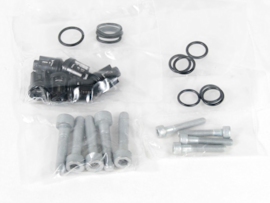
How to install a pressure washer check valve kit
Air in the inlet water supply can damage the check valves. If the pump won’t build up pressure due to damaged check valv…
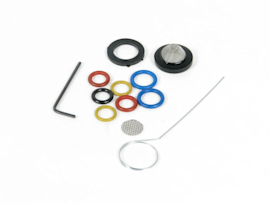
How to install a pressure washer O-ring kit
O-rings seal fittings on the pressure washer pump. Damaged seals allow water to leak from the pump. Follow these steps t…
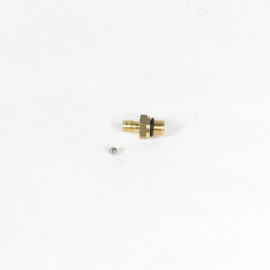
How to install a pressure washer chemical injection kit
The chemical injection valve draws detergent into the pump. If it’s not drawing detergent, use a repair kit to replace t…
Effective articles & videos to help repair your pressure washers
Use the advice and tips in these articles and videos to get the most out of your pressure washer.

Learn about all the convenient features on our Sears PartsDirect website that make your parts purchases easier.…

Learn about a new feature added to the Search Bar on Sears PartsDirect…
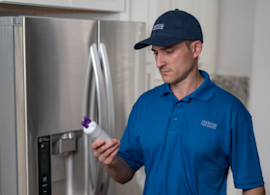
Get answers to frequently asked questions about Sears and Sears PartsDirect.…